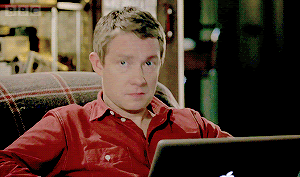How to find more awe
Plus, the key to cultivating creativity and compassion
“Wherever there is judgment, there is noise. And there is more of it than you think.” —Daniel Kahneman
BRAIN WAVES
Can creativity be...created? Creative inspiration often feels whimsical and random, but James Clear, author of Atomic Habits, argues that you can’t sit around waiting for creativity to happen. You have to schedule time for it. From Haruki Murakami to the late Maya Angelou, professional creatives are often known to stick to schedules and routines for producing their work. Perfectionism can get in the way of creativity, Clear says, so it’s important to make peace with the idea that you’ll churn out junk on your way to producing something good. “If you don’t have a schedule forcing you to deliver, then it’s really easy to avoid doing the work at all,” he writes. “The only way to be consistent enough to make a masterpiece is to give yourself permission to create junk along the way.” Useful advice if you feel creatively blocked.
Want more wow in your life? Researcher Dacher Keltner has defined awe as the “feeling of being in the presence of something vast and mysterious that you don’t understand with your current knowledge.” It’s the feeling you get at the edge of the Grand Canyon or below a night sky full of stars. Science writer Summer Allen details what she calls “Keltner’s Eight Wonders of Life,” or eight ways to seek out more awe in everyday life. For example, you can invoke awe when you move in unison with others. “Moving together appears to help strengthen social ties,” Allen writes. “To test out this wonder, try participating in a form of shared movement such as dance, exercise, playing music, singing in a choir, cheering on a sports team or even walking with a friend.” She shares seven more ways to find awe, from listening to music to observing nature.
Showing compassion toward someone can make a big difference in that person’s day. But it can also improve your own well-being. Psychologist Scott Plous of Wesleyan University explains how doing things for others can make a big difference in our own lives. “Compassion is contagious,” Plous says. Listen to learn more.
ON THE PODCAST
May 17: We all change our minds from time to time. The decisions we make vary depending on our mood or circumstances. But when it comes to matters of judgment, this variability is often unwanted. Nobel prize-winning psychologist Daniel Kahneman calls this “noise.” Noise, he says, is pervasive in our lives, and it’s often a much bigger problem than we realize.
May 24: Has life ever stopped you in your tracks, forcing you onto an entirely different path? Maya Shankar was well on her way to an extraordinary career as a violinist when an injury closed that door. She eventually found a new path forward in a very different field.
MIND GAMES
What is unique about these words: job, polish, herb?
LAST WEEK’S PUZZLE
Walking down a road, you reach a fork, where you meet two brothers. They’re identical except that one can only tell the truth, while the other can only tell lies. You’re not sure which fork to take, but you do know that one side leads to eternal life and happiness, while the other side leads to death and destruction. To figure out which road to take, you can only ask one brother one question. You don’t know which brother is the liar and which one tells the truth. What question should you ask?
The answer: You would ask a “meta-question” along the lines of, “If I asked your brother which road leads to happiness, which path would he answer?” The truth-telling brother would point to destruction, because he knows his brother would lie. The lying brother would also point to destruction. He knows his brother would tell the truth – but being a liar himself, he would point toward destruction. In other words, both brothers will point at destruction, which tells you which path leads to happiness.
FROM THE TWITTERATI
A MOMENT OF JOY
The wisdom of cows, from the School of Life. “If you look at a cow for five minutes, a tiny part of its tranquil soul takes root in you.”
Have an idea for Hidden Brain? A story you want to share with us? Send an email to ideas@hiddenbrain.org. And if you’d like to support our work, you can do so here. Listen to us on Spotify, Apple or your favorite podcast platform.





